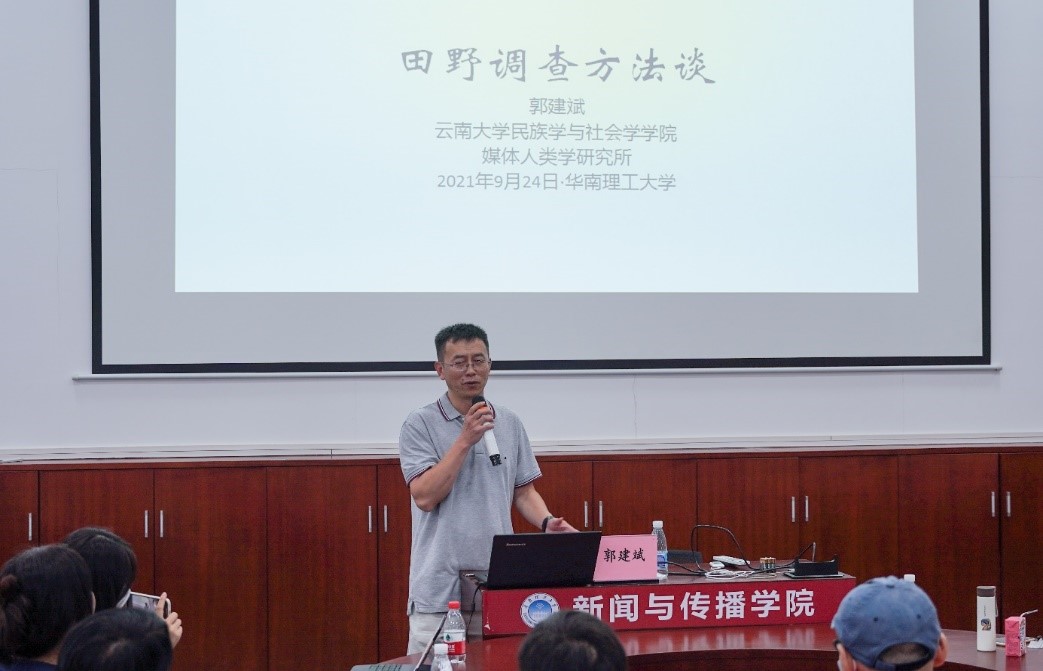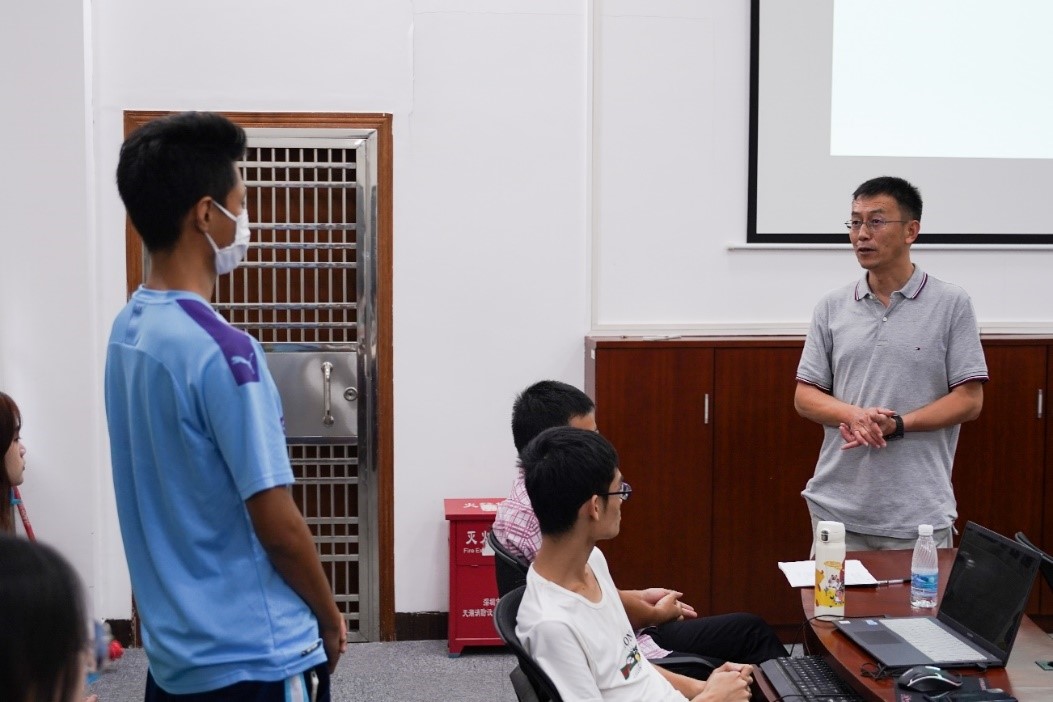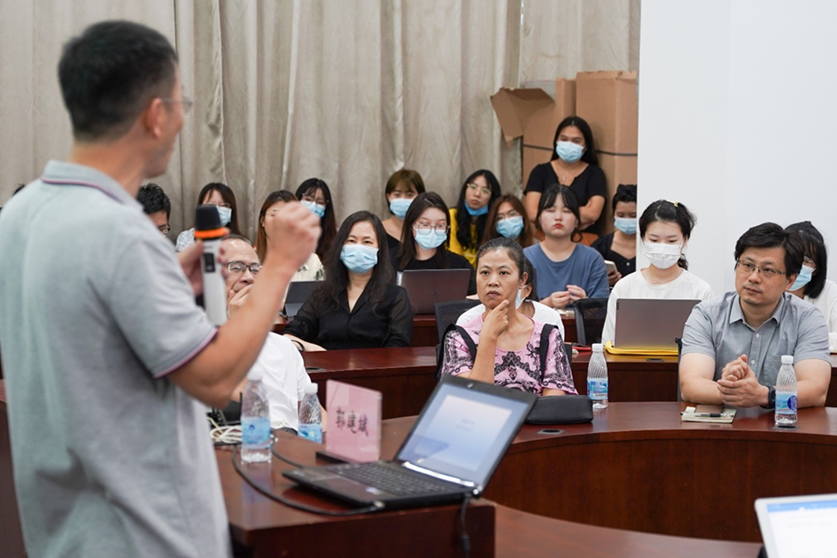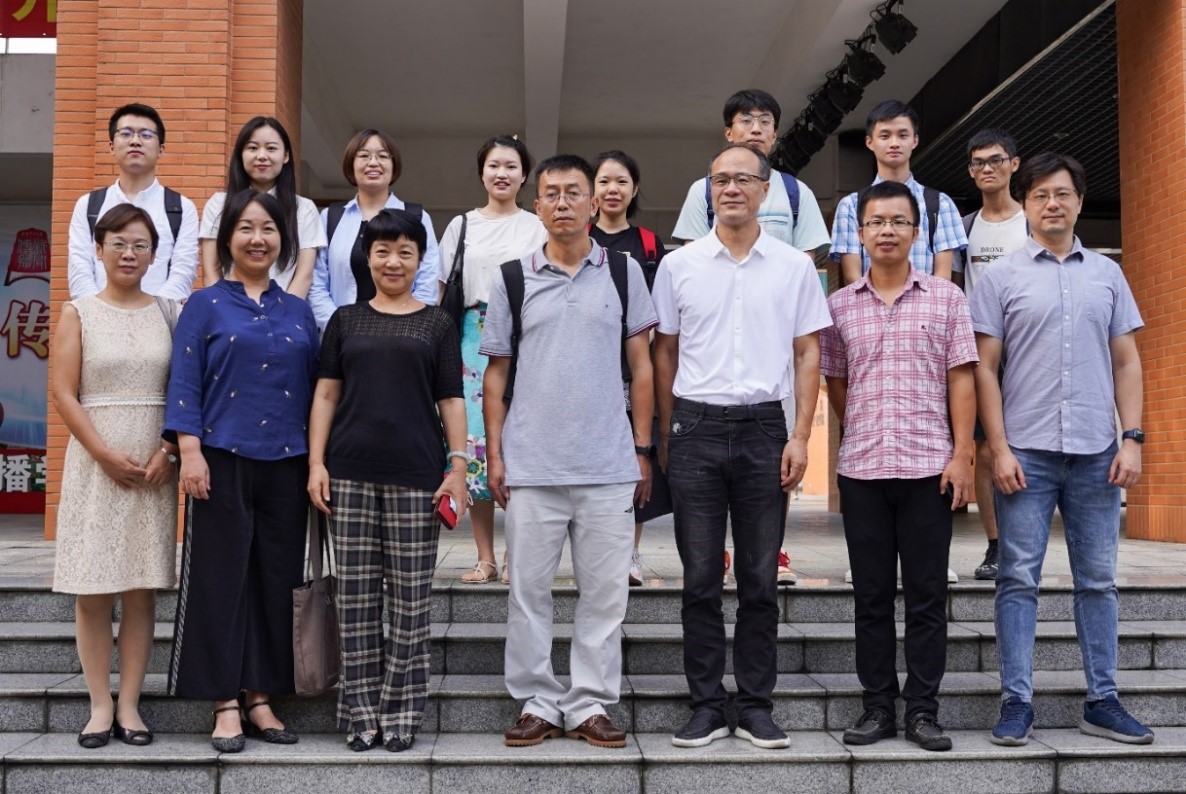In order to deepen students' understanding of research methods, on September 24, the School of Journalism and Communication, in conjunction with the Guangdong Provincial Public Diplomacy and Intercultural Communication Research Base, invited Professor Guo Jianbin of Yunnan University to give a lecture on Fieldwork Methods. More than 70 instructors and students including Secretary Feng Xiangyang of the Party Committee of the School of Journalism and Communication, Dean Su Hongyuan, Vice Dean Cao Xiaojie, and Professor An Ran of the School of International Education attended the event.

During the lecture, Professor Guo gave some suggestions on how to integrate into the field, an important issue in fieldwork. First of all, it takes a long time to integrate into the field. Some students often only take two or three weeks to integrate into the field. After the investigation, they are still outsiders. Second, fieldwork is actually a field study, and fieldwork can be done wherever there are people, from a small park, home or laboratory, to a country, a city, or even a country. At the same time, during field research, different ethnic groups should actively communicate and exchange, cross cultural boundaries, resolve estrangements, and seek harmony among multiculturalism. Finally, think like a native. Eat, live, and work together, stay close to the local people, learn their language, understand their values, understand their concepts, break away from the original position, and think from the position of the local people.

In the question and answer session, in response to the question of how to participate in observation mentioned by the students, Professor Guo believes that the real experience obtained in participation will be more important than observation. Professor Guo took his own investigation experience in the TV room as an example. He believes that there are some things that cannot be imparted by the visual observation recorded by the human eye or the camera. It is necessary to mobilize the senses of smell, taste, touch and other senses to coordinate with each other in order to obtain a real experience.

Professor Guo also discussed with the teachers on topics such as observation records, television fields, and online ethnography. Professor Guo believes that in fieldwork, listen more and ask less. Listen to the different voice. Investigators should get out of the own culture, understand and integrate into the different culture. Ask relevant questions. At the same time, he also mentioned that when asking interviewees questions, they should ask questions in a gentle and gradual manner, so as to retain the professional quality and humanistic care of scholars.
Regarding field notes, Professor Guo believes that writing should be used to drive thinking. In the process of writing, you will preliminarily organize what you see, hear, think, and feel, so as to drive your brain, organize your thoughts, trigger research questions, and keep fresh feelings. Looking back on the past, even in the most difficult environment, Professor Guo forced himself to write field notes every day. Years of persistence and records have given Professor Guo a wealth of material accumulation. The so-called flash of inspiration is based on a down-to-earth attitude.

Based on theory, but keep loyal to feelings. At the end of the lecture, Professor Guo proposed to be faithful to the feelings in the field, and also to browse various theoretical documents, broaden the breadth of vision, extend the depth of thinking, and finally find a suitable node to connect theoretical experience with field reality.





